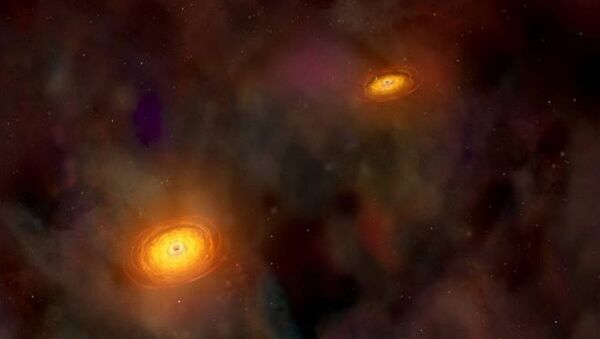A new study published in the journal Nature Astronomy suggests that the rate at which the universe is expanding, also known as the Hubble constant, is much higher than scientists initially believed. Astronomers Guido Risaliti from the University of Florence and Elisabeta Lusso from Durham University studied the data of 1,600 supermassive black holes in order to determine a more accurate Hubble constant — which led to unexpected results.
READ MORE: Faster-Than-Expected Expansion of Universe Challenges Current Astrophysics Model
It turned out that the rate of the universe's expansion has changed over time after the Big Bang, gradually increasing. It's unclear so far what is causing it to speed up, but Lusso believes that a hypothetical force, known as dark energy, could be behind the acceleration.
"We may need to explore new physics, for example rethinking the potential properties of dark energy", she said in an interview with The Independent.
Her colleague, Risaliti, thinks that dark energy might have evolved over time, increasing its density, noting that it would explain their latest findings.
READ MORE: 'No Evidence' Universe Expanding at Accelerating Rate — Oxford Scientists
Previously, the scientists used exploding supernovas as reference points to determine how fast objects in space move away from each other over time. However, black holes, which are constantly emitting large amounts of radiation, have proven to be a better reference. What is more, they even allowed astronomers to study the rate of expansion in the early days of the universe.
"Black holes are the most luminous persistent sources of the universe and allow us to measure its expansion rate at very early times", Lusso said.

